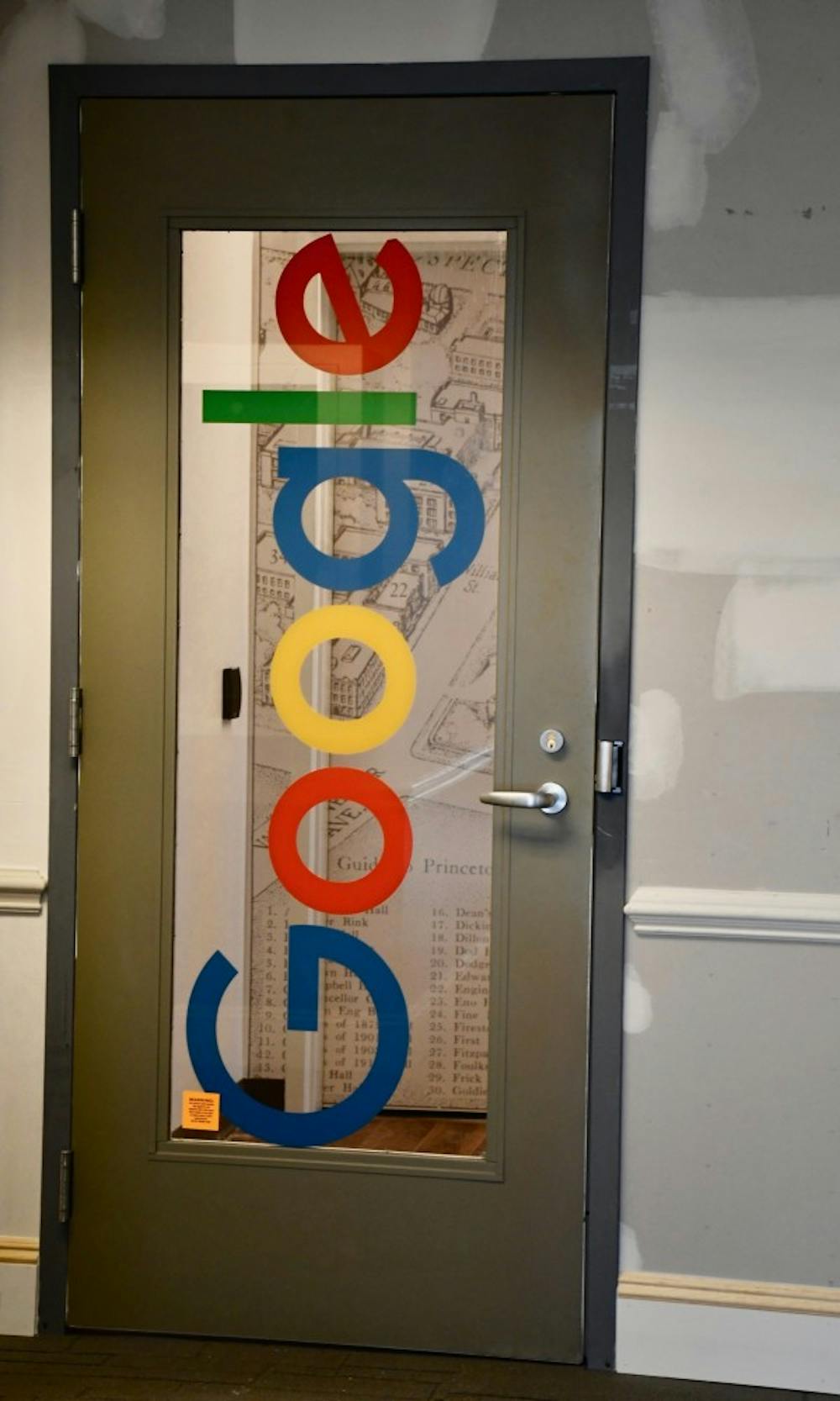This month, Google and the University will open their joint artificial intelligence (AI) lab at 1 Palmer Square, mere steps from Nassau Hall. Everyone who stands to benefit from the project — Princeton professors, Google officials, even New Jersey Governor Phil Murphy — has lauded the decision. By entangling scholarship with Google’s sponsorship, however, the University has failed to protect its professors from plausible ethical dilemmas.
Professor Jennifer Rexford, Chair of the Computer Science Department, argued that the lab complements the “three pillars of excellence” that characterize the University’s computer science curriculum: computing theory, innovative collaboration, and “leadership, through our Center for Information Technology Policy, in the broader societal implications of computing such as bias and ethics in AI, privacy and security.” In effect, the University has deferred all moral questions, Rexford’s “third pillar,” to its Center for Information Technology Policy (CITP).
Yet, the CITP is not immune to conflicts of interest. In 2010, Google hired Deven Desai, then a Visiting Fellow at the Center, to identify researchers who could defend the company’s policies. Desai paid each of Google’s academic partners tens — sometimes hundreds — of thousands of dollars. In return, the researchers shared drafts of their work with Google employees, many of whom offered suggestions.
Although Google did not restrict the scholars, much of their research supported the company’s controversial practices. In one case, when the Federal Trade Commission (FTC) debated whether to charge Google with antitrust violations, the law firm representing the company sent the commissioners several of Desai’s pro-Google papers. The FTC subsequently ruled in Google’s favor.
Google’s largesse is a double-edged sword. On one hand, the company fosters legitimate and cutting edge collaboration with universities. On the other, when its dubious conduct comes into question, Google utilizes academia for its own purposes. Through its philanthropic presence, the company gains access to a vast network of legal and scientific scholars.
Even academics as distinguished as Rexford and Edward Felten, Director of the CITP, have received research funding from Google. Felten’s incisive research and antitrust investigations as the FTC’s inaugural Chief Technologist have earned him a reputation for fairness. Nonetheless, the University should disclose Felten’s previous work with Google, given that he will be responsible for answering the questions of bias, ethics, privacy, and security that Google’s University lab will inevitably raise.
Rexford described the lab as “an exciting opportunity to work with a leading company while also maintaining the strong academic independence and freedom that is essential to Princeton.” Unless Nassau Hall releases the terms of its contract with Google, however, it is impossible to know whether the proper precautions are in place. For example, the University reports that professors Elad Hazan and Yoram Singer, the lab’s principal researchers, “will split their time working for Google and Princeton.” How can the University expect professors to study AI as a pursuit of truth if their work profits Google shareholders?
To compound the problem, artificial intelligence, a field of both great promise and moral hazard, raises unprecedented ethical questions. University professors, many of whom pursue beneficial applications of AI, are at the forefront of this intellectual phenomenon. As the faculty grapples with such profound quandaries, the University has doubled down on its naïve trust in Google, which reaps astronomical profits from unbridled AI.
Google’s AI lab falls within the University’s larger ambition to champion New Jersey’s “innovation ecosystem.” According to a press release, last year was “a pivotal point,” as the University “established significant new collaborations with pioneering members of industry,” including Google and Celgene, the pharmaceutical company formerly headed by U. Trustee Bob Hugin ’76.
Both Governor Phil Murphy and President Christopher Eisgruber ’83 have waxed poetic about the initiative, which aspires to turn New Jersey, the “Silicon Valley before there was a Silicon Valley,” into a technological hub. Yet, powerful though the incentives of profit, prestige, and politics may be, the University should know better than to take corporate beneficence for granted.
Jon Ort is an Associate Opinion Editor of the Daily Princetonian. This piece represents the views of the Associate Opinion Editor only. He can be reached at jaort@princeton.edu.









